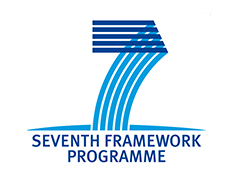Print

Development of Vascular-Disrupting Lymphocyte Therapy for Tumours: ANTIVESSEL-T-CELLS
Details
Locations:Switzerland
Start Date:Aug 1, 2013
End Date:Jul 31, 2018
Contract value: EUR 2,500,000
Sectors: Health, Research & Innovation
Description
Programme(s): FP7-IDEAS-ERC - Specific programme: "Ideas" implementing the Seventh Framework Programme of the European Community for research, technological development and demonstration activities (2007 to 2013)
Topic(s): ERC-AG-LS7 - ERC Advanced Grant - Diagnostic tools, therapies and public health
Call for proposal: ERC-2012-ADG_20120314
Funding Scheme: ERC-AG - ERC Advanced Grant
Grant agreement ID: 322875
Objective
T cell engineering with chimeric antigen receptors has opened the door to effective immunotherapy. CARs are fusion genes encoding receptors whose extracellular domain comprises a single chain variable fragment (scFv) antibody that binds to a tumour surface epitope, while the intracellular domain comprises the signalling module of CD3ζ along with powerful costimulatory domains (e.g. CD28 and/or 4-1BB). CARs are a major breakthrough, since they allow bypassing HLA restrictions or loss, and they can incorporate potent costimulatory signals tailored to optimize T cell function. However, solid tumours present challenges, since they are often genetically unstable, and the tumour microenvironment impedes T cell function. The tumour vasculature is a much more stable and accessible target, and its disruption has catastrophic consequences for tumours. Nevertheless, the lack of affinity reagents has impeded progress in this area. The objectives of this proposal are to develop the first potent and safe tumour vascular-disrupting tumour immunotherapy using scFv’s and CARs uniquely available in my laboratory.
I propose to use these innovative CARs to understand for the first time the molecular mechanisms underlying the interactions between anti-vascular CAR-T cells and tumour endothelium, and exploit them to maximize tumour vascular destruction. I also intend to employ innovative engineering approaches to minimize the chance of reactivity against normal vasculature. Lastly, I propose to manipulate the tumour damage mechanisms ensuing anti-vascular therapy, to maximize tumour rejection through immunomodulation. We are poised to elucidate critical interactions between tumour endothelium and anti-vascular T cells, and bring to bear cancer therapy of unparalleled power. The impact of this work could be transforming, given the applicability of tumour-vascular disruption across most common tumour types.


